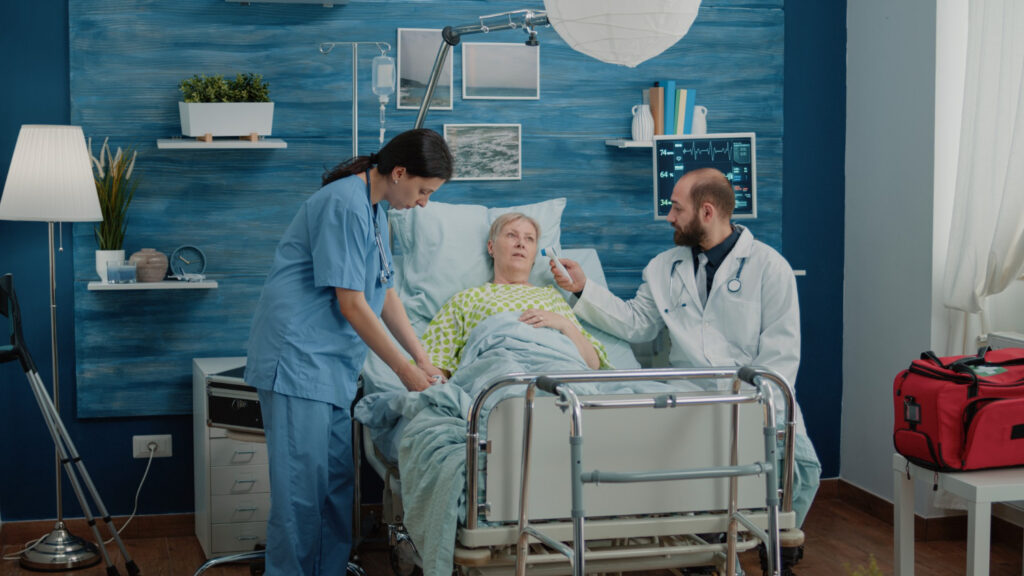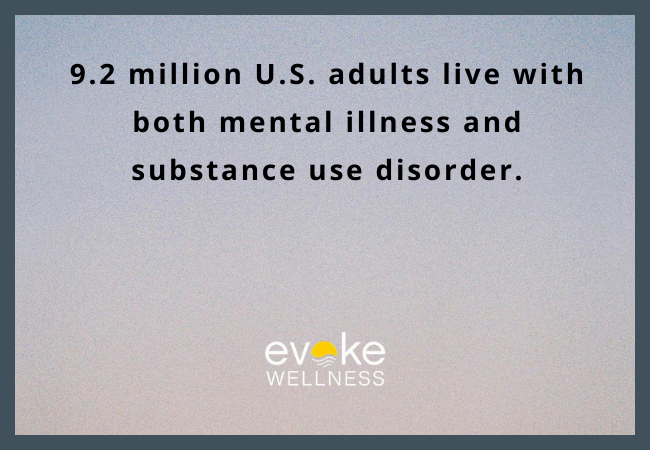Recovery doesn’t happen overnight—it’s a process that requires time, support, and the right level of care. For many individuals seeking to overcome substance use disorders or mental health challenges, a Partial Hospitalization Program (PHP) serves as an essential step in their healing journey. But one of the most common questions people ask when considering PHP is: How long does it last?
The truth is, there’s no one-size-fits-all answer. The duration of a PHP depends on the individual’s unique circumstances, diagnosis, progress in treatment, and the structure of the program itself. Understanding the timeline of PHP helps individuals and families set realistic expectations and prepare for a meaningful treatment experience.
What Is a PHP and Who Is It For?
A PHP is an intensive, structured treatment program designed for individuals who require more support than traditional outpatient therapy but do not need 24-hour residential care. PHP typically includes multiple therapy sessions each day, medical oversight, psychiatric support, and holistic wellness services.
People enter a PHP for a variety of reasons, including:
-
Transitioning from an inpatient or detox program
-
Experiencing a relapse and needing stabilization
-
Struggling with co-occurring mental health and substance use disorders
-
Requiring intensive care while still being able to return home in the evenings
A PHP is not a “quick fix”—it’s a critical step on the path to long-term recovery and wellness. Individuals participating in a Partial Hospitalization Program in Massachusetts receive structured, evidence-based support that meets them where they are.
Factors That Influence the Length of PHP
The duration of PHP varies widely based on several key factors:
1. The Severity of the Condition
People with long-term substance use disorders, multiple relapses, or complex mental health conditions often require longer stays in PHP to ensure stability and progress.
2. Co-Occurring Mental Health Issues
When an individual is experiencing both addiction and a mental health disorder, treatment takes time. Dual diagnosis care addresses these conditions simultaneously, which often results in a longer—but more effective—treatment plan.
3. Level of Progress
Treatment is not linear. Some individuals show significant progress within a few weeks, while others may require more time to engage in therapy, build trust, and stabilize emotionally.
4. Support Systems and Environment
Those who have a strong support network at home or live in a sober living environment may move through PHP more efficiently than those in more unstable situations.
5. Program Structure and Goals
Different facilities offer PHP with varying formats. Some programs are short-term and intensive, lasting a few weeks, while others extend over a period of months depending on clinical recommendations.
Typical PHP Duration: What to Expect
While the exact timeline varies, most Partial Hospitalization Programs follow one of the following general schedules:
Short-Term PHP (2 to 4 Weeks)
-
Ideal for individuals who have recently completed inpatient or detox treatment
-
Focuses on relapse prevention, coping skills, and early reintegration
-
Best suited for individuals with mild-to-moderate symptoms and strong external support
Moderate-Term PHP (4 to 8 Weeks)
-
Offers deeper therapeutic work with time for personal growth and reflection
-
Suitable for clients working through trauma, dual diagnosis, or complex emotional regulation issues
-
Allows more time for behavioral change and relapse planning
Extended PHP (8+ Weeks)
-
Typically recommended for individuals with chronic relapse patterns, severe mental health issues, or limited outside support
-
Emphasizes comprehensive care, skill-building, and long-term recovery planning
-
May involve a step-down transition into an Intensive Outpatient Program (IOP)
Each phase of PHP builds upon the previous one, offering clients the space to develop insight, strengthen coping mechanisms, and prepare for life beyond structured care.
Weekly PHP Schedule Breakdown
In general, clients in PHP attend treatment five to six days a week, for about 5–6 hours each day. A typical weekly schedule might include:
-
Daily group therapy sessions
-
One-on-one sessions with a primary therapist
-
Medication management and psychiatric support
-
Holistic and wellness services such as yoga or mindfulness practice
-
Family therapy or case management
This level of consistency promotes accountability, structure, and a strong therapeutic alliance—all essential components for effective treatment.
Evoke Waltham is committed to providing flexible timelines based on clinical need, not a rigid calendar. Our goal is to guide individuals through a PHP experience that genuinely supports recovery.
Transitioning Out of PHP
A successful PHP experience is often followed by a step-down into an Intensive Outpatient Program (IOP), outpatient counseling, or peer support groups. Planning for this transition is part of the treatment process. Therapists work with clients to create an aftercare plan tailored to their needs and goals.
Transition planning may include:
-
Identifying ongoing therapy resources
-
Finding community support groups or 12-step programs
-
Developing a relapse prevention plan
-
Coordinating continued psychiatric care if needed
-
Exploring sober living options for additional structure
Smooth transitions help prevent relapse and maintain the progress made during PHP.
PHP for Substance Use Recovery
PHP plays a vital role in substance use recovery by offering daily therapeutic engagement without the constraints of 24/7 residential care. Clients work through addiction-related challenges such as cravings, emotional triggers, and distorted thinking. With the guidance of experienced therapists and support groups, they rebuild healthy routines and prepare for sober living.
At Evoke Waltham, we understand the complexity of addiction recovery and provide individualized treatment plans rooted in compassion and clinical excellence. As part of our continuum of care, we’re proud to be among the trusted Substance Abuse Treatment Programs in Massachusetts, offering tailored PHP services to help people reclaim their lives.
PHP for Mental Health Stabilization
In addition to substance use treatment, PHP is also effective for stabilizing and managing mental health conditions such as:
-
Depression and anxiety
-
Bipolar disorder
-
PTSD and trauma-related disorders
-
Borderline personality disorder
-
Panic disorder or obsessive-compulsive disorder (OCD)
Mental health-focused PHP provides structured support that helps clients manage symptoms, develop emotional regulation skills, and avoid hospitalization.
Our comprehensive Mental Health Therapy Programs in Waltham, Massachusetts are designed to support clients through each phase of their emotional recovery—ensuring that mental health is never treated as an afterthought.
Combining Therapy and Medical Support
One of the key strengths of PHP is the integration of therapeutic and medical services. At Evoke Waltham, clients benefit from:
-
Medication management with licensed psychiatrists
-
Therapy using proven methods like CBT, DBT, and trauma-informed care
-
Psychoeducation to build insight into conditions and behaviors
-
Daily check-ins for safety, stability, and progress tracking
This holistic model of care ensures that both physical and emotional aspects of recovery are addressed together.
Our evidence-based approach places Evoke Waltham among the leading Addiction Treatment Programs in Waltham, Massachusetts, with services that cater to both mental health and substance use recovery needs.
How to Know If You’re Ready for PHP
PHP might be the right choice if you or a loved one:
-
Have recently completed detox or residential care and need continued support
-
Are struggling with relapse or worsening symptoms
-
Need daily therapy but do not require round-the-clock supervision
-
Want to build a strong recovery foundation while maintaining some daily responsibilities
Evoke Waltham conducts thorough assessments to determine whether PHP is appropriate. Our team collaborates with each client to create a personalized treatment roadmap, adjusting the duration of care as needed based on progress.
Why Choose Evoke Waltham for PHP?
At Evoke Waltham, we believe in compassionate, clinically grounded treatment that meets people where they are. When you choose us for PHP, you receive:
-
A welcoming, judgment-free environment
-
Highly experienced therapists and medical professionals
-
Custom treatment plans based on your diagnosis, goals, and lifestyle
-
Integration of holistic wellness services alongside traditional therapy
-
Ongoing support as you transition to lower levels of care
We don’t rush recovery. We offer the time, space, and expertise to help each individual create meaningful, lasting change. Whether you’re facing addiction, mental health challenges, or both, we’re here to guide your journey—one step at a time.
Conclusion
Understanding how long PHP lasts is about more than dates on a calendar—it’s about recognizing that healing takes time, and that each person’s path is unique. Whether your PHP experience lasts four weeks or several months, what matters most is the depth of support, the quality of care, and the progress you make along the way.
At Evoke Waltham, our goal is to provide the structure and support you need—no matter how long it takes—to help you step forward into a healthier, more empowered future.
Call us today at 866.276.1920 to learn more or speak to an admissions specialist. The next step in your journey could start today.
Frequently Asked Questions (FAQs)
What is a Partial Hospitalization Program (PHP)?
A Partial Hospitalization Program (PHP) is a structured mental health or addiction treatment program that provides intensive care during the day while allowing clients to return home at night.
How long does a typical PHP last?
Most PHP programs last between 2 to 8 weeks, depending on individual progress, clinical needs, and co-occurring conditions. Some individuals may benefit from extended PHP care if they need more time to stabilize.
Is PHP suitable for both mental health and substance use treatment?
Yes, PHP is an effective level of care for people with mental health challenges, substance use disorders, or both. It offers integrated therapy, psychiatric care, and skill-building throughout the program.
What is the difference between PHP and inpatient care?
Inpatient care provides 24/7 support and supervision, while PHP is a step down that still offers daily treatment but allows clients to live at home or in a sober living environment during their recovery.
How do I know if PHP is the right level of care?
If you or your loved one has completed detox or inpatient care, is experiencing a relapse, or needs structured therapy without full-time residential care, PHP may be the right next step. A clinical assessment at Evoke Waltham can determine the best fit.



